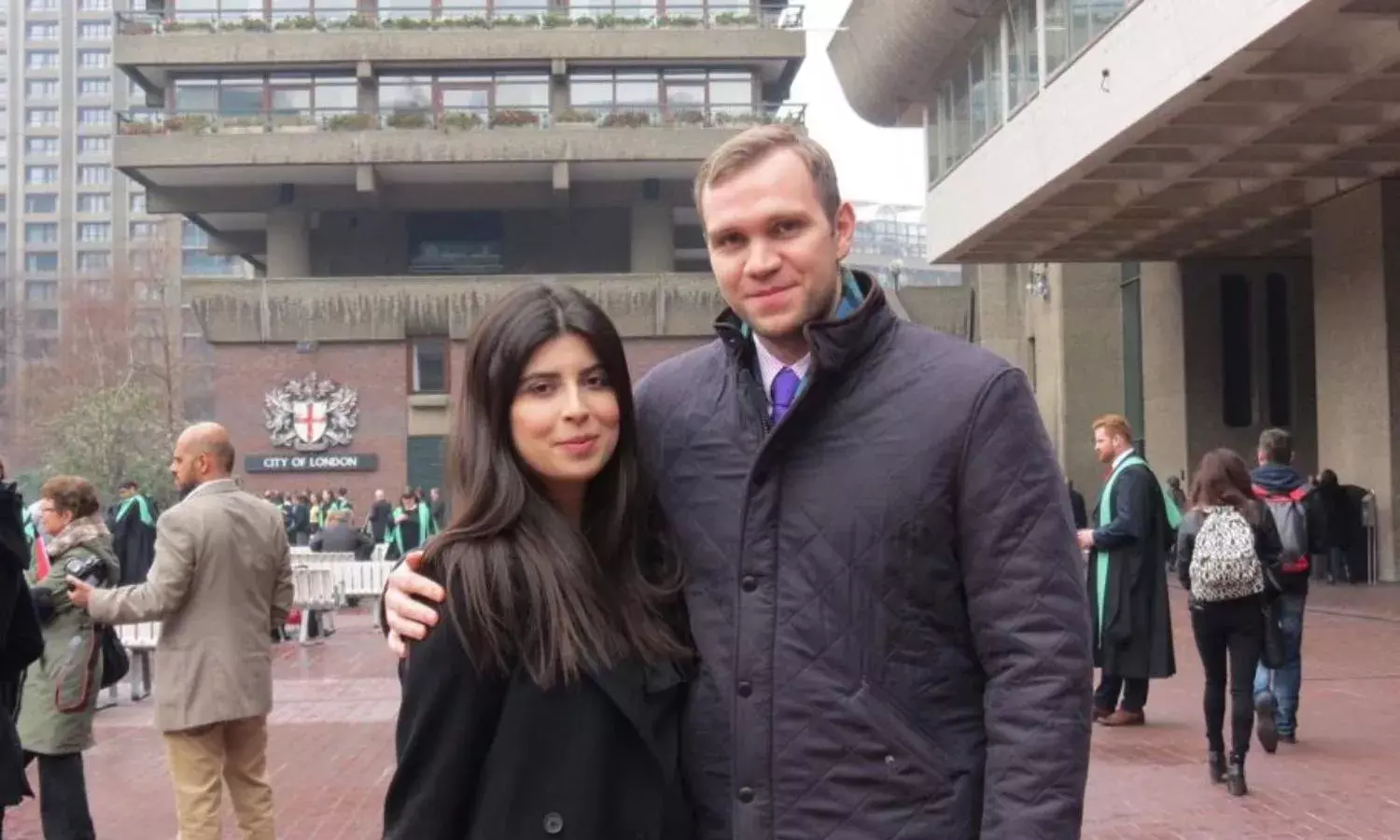Life Imprisonment for Scholar Matthew Hedges For “Spying” in UAE
States are suffering from security paranoia since the Arab uprisings;

In a major development, Matthew Hedges, 31, was sentenced to life imprisonment by the Federal Appeals Court of Abu Dhabi on November 21. The British national, who is a PhD scholar at Durham University was charged with spying and jeopardising the economic, military and political security of the United Arab Emirates.
Hedges, who was working on the implications of the ‘Arab Spring’ for the UAE’s foreign policy was arrested at Dubai Airport on May 5. He has been in jail since, in solitary confinement.
Yesterday’s sentence was pronounced after a five minute court hearing, without Hedges’ lawyer present.
His family stated that Hedges was made to drink a cocktail of medications every day, which eventually made him vomit regularly. He was forced to sign a document in Arabic which purported to be a confession from his side.
Hedges has 30 days to appeal the verdict.
UK Prime Minister Theresa May has openly shared her shock and disappointment with Hedges’ treatment. Foreign Secretary Jeremy Hunt had initiated a diplomatic conversation with UAE Crown Prince Mohammad bin Zayed and Foreign Minister Abdullah bin Zayed regarding the charges against Hedges.
The government of the UK is still struggling for the release of Nazanin Zaghari-Ratcliffe, 39, a British-Iranian citizen who was arrested in Iran in April 2016 on charges of spying and is currently serving a five-year sentence. The UK Foreign Office has stated that the Iranian government is using Zaghari-Ratcliffe’s arrest as a diplomatic bargaining chip.
Scholars at Risk, an NGO based at New York University recently reported that 294 attacks took place on scholars in 47 countries in the year between September 1, 2017 and August 31, 2018.
The brutal murder of Italian scholar Giulio Regeni in Cairo in 2016 perhaps hinted at the pattern that would emerge as the Arab uprisings were met with state retaliation. Regeni was a researcher at Cambridge University focusing on Egypt’s independent labour reforms.
Regeni’s murder, for which the Egyptian deep state is perceived to be responsible, exacerbated diplomatic relations between Egypt and Italy. Marking the two-year-anniversary of Regeni’s death, Rome’s chief prosecutor Guiseppe Pignatone demanded a joint investigation by Italian and Egyptian authorities into the matter.
Another scholar, Walid Salem, was arrested in Egypt earlier this year and sentenced to 15-day precautionary detention. Salem is an Egyptian national and a PhD scholar at the University of Washington in Seattle who was researching judicial independence in Egypt.
Several countries in West Asia or the Middle East have arrested not only foreign nationals but even their own citizens. Saudi Arabia was in the news recently for the arrest of women scholar activists who questioned human rights violations in the country. Scholars such as Aziza Al-Youssef (a former teacher of computer science at King Saud University), Eman al Nafjan (a professor of linguistics) and Hatoon al Fazzi (a researcher on women’s issues) were arrested.
There has only been scant coverage of these arrests in the media.
Meanwhile, Turkey, whose government is currently putting pressure on the US regarding the murder of journalist Jamal Khashoggi inside the Saudi Consulate in Istanbul, itself witnessed rampant arrests of academics in November 2018. Academics such as Betul Tanbay (vice-president of the Mathematical Society), Turgut Tarhanli (dean of the law faculty at Istanbul Bilgit University) and Cigdem Mater (a researcher at Yale University) remain under arrest.
In fact, Scholars at Risk revealed that 880 university professors, students as well as staff members have been arrested in Turkey on the charges of inciting a coup against the president.
In Bahrain as well, the media has failed to highlight the muzzling of academic freedom in the country. Young students like Redha Merza Mushaima and others were arrested in 2014 on charges of inciting terrorism. Others like Ahmed Abdulla Al Ajaimi and Sadeq Jaafar Ali were arrested in 2017 and stripped off their Bahraini nationality after being tortured and sent to the notorious Jau Prison.
Israeli governments too has a history of arresting, detaining and deporting scholars who show solidarity towards the Palestinian cause. Interestingly, when authorities detained American student Lara Alqasem for two weeks earlier this year at a border detention facility due to her support for the BDS movement, her appeal ultimately led to a court ruling permitting her to enter and pursue a Master’s degree at Hebrew University in Jerusalem.
Meanwhile, hundreds of scholars, often of Palestinian heritage, are arrested or simply deported from Tel Aviv, restricting their work.
Careful study of the various arrests and academic muzzling reveals some interesting patterns.
First, dictatorships in West Asia or the Middle East suffer from security paranoia after the wave of Arab uprisings, and have ‘tightened’ their security and intelligence networks.
Second, foreign nationals, especially those from the UK, the US and the European Union are being nabbed during their research trips, primarily to be used as diplomatic bait for the longer political game.
Third, most hearings relating to these arrests take place in military courts, which is indicative of the power hierarchy between military and civil courts in these countries.
Fourth, only very few of these political detainees have witnessed justice, and this pattern can only be expected to increase in the coming years.
Academics researching politics in this part of the world face great risk and no legal protection. The aggressive manner in which intellectuals, journalists and politicians across borders are demanding justice for the murder of Jamal Khashoggi should be seen in this light. If such arbitrary detention is not also protested, the human and civil rights situation in Middle East will only worsen, jeopardising any form of academic or journalistic inquiry.

